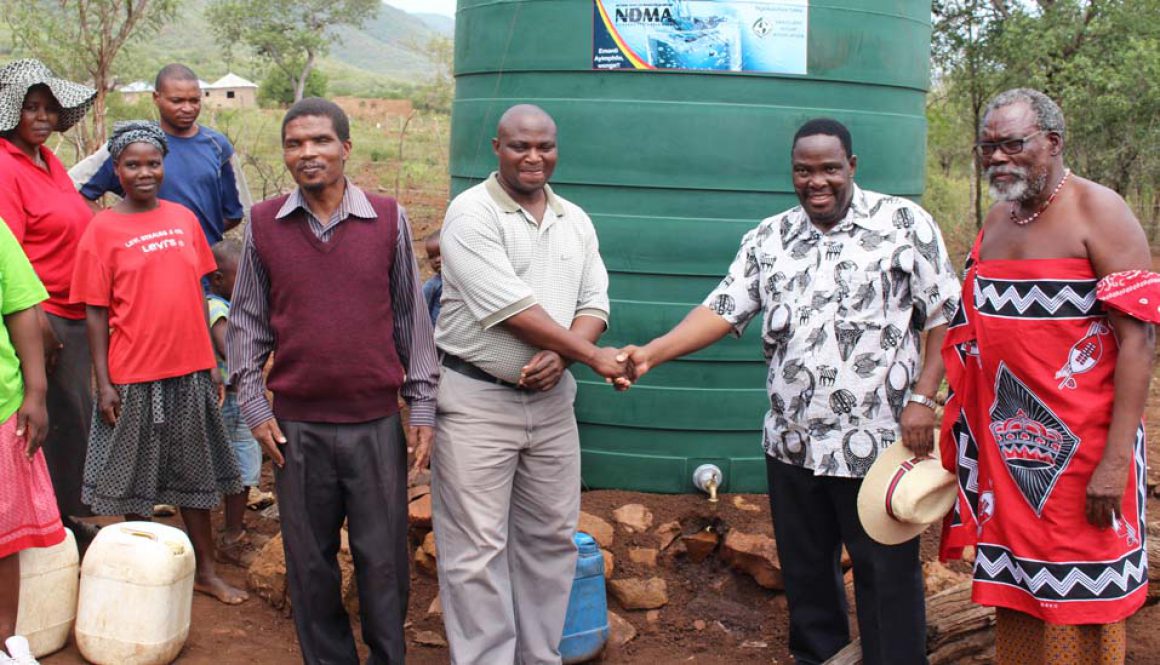SUGAR INDUSTRY PROVIDES RELIEF TO DROUGHT STRICKEN
The sugar industry has come together to provide much needed water assistance to the drought stricken communities of the Lowveld. This has been achieved through partnership among various sugar industry members, some of whom contributed financially (either directly or through the Eswatini Sugar Association) while others offered tankers and treated water from their estate water treatment plants. This is part of the industry’s corporate citizenship efforts which reflects partnership with its neighbouring communities which are most hard hit by the prevailing drought conditions.
The industry has procured and shall be distributing a total of 27 water tanks to various chiefdom’s throughout the sugarbelt and neighbouring communities. In addition, treated water shall be ferried to fill up the tanks. To date, ESA has made a pledge of a sum of E120 000 to towards the drought relief programme.
Implementation is being done in conjunction with all the industry members and through the National Disaster Management Agency (NDMA) which has provided the required needs assessment and utilised fast-tracked means to facilitate the procurements and deliveries. An event was held at Lomahasha on 15 January 2016 to hand over the tanks to some of the communities. This event was attended by, amongst others, the Chairperson of NDMA who expressed her appreciation at the generous donation by the industry, which would provide much needed relief to their programme.
The industry members that have come on board for this initiative include: Eswatini Sugar Association (ESA), Eswatini Cane Growers Association (ECGA), Tambankulu Estates, Tibiyo TakaNgwane, Ubombo Sugar Limited and Royal Eswatini Sugar Corporation (RESC). The water tanks would be filled with portable water periodically until the water situation normalizes.
Eswatini has seen the extraordinary effects of El Nino (reflected through drought in the country) over the last few months. The drought has covered the country at large and the Lowveld has been hardest hit, with the effects felt mainly through souring temperatures and significantly reduced rains despite this being a rainy season. This has resulted in farmers losing their livestock in high numbers and human lives are now also at risk due to the limited availability of potable water and lack of subsistence farming.
The reduced water availability has also meant that industry members must reduce water used for irrigation and running milling operations while prioritising the saving of human lives. The industry has initiated various water saving approaches to ensure equitable balance between use of water for agriculture and human needs as the water sources for both are the same. This is a strategic consideration from the industry as abandoning sugarcane growing altogether is not an option as the sugar industry forms the backbone of the economy especially for those communities nearby who depend on it for employment and other income generating activities.

